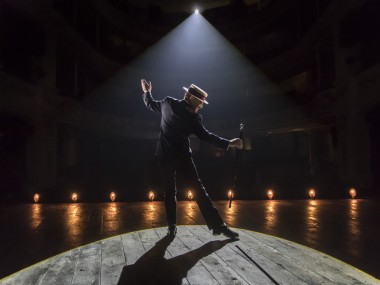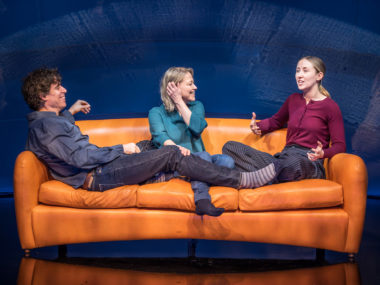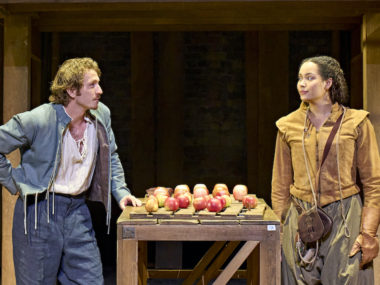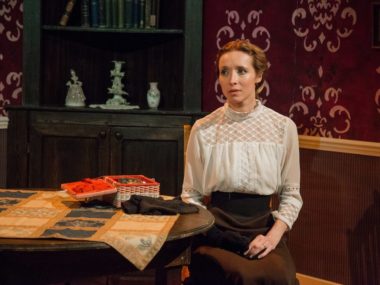Mrs Warren’s Profession, Garrick Theatre
Friday 4th July 2025
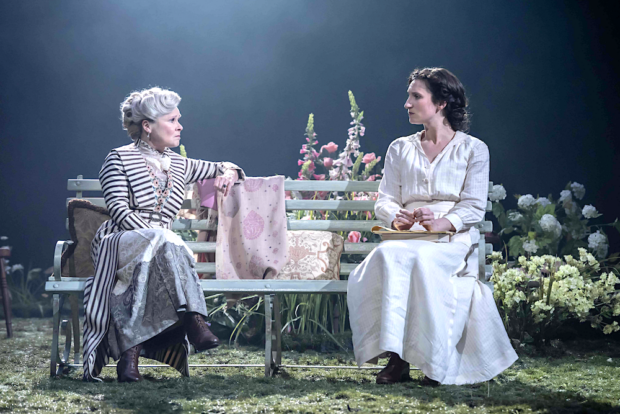
George Bernard Shaw is the supreme example of old writing. Maddeningly verbose, eye-poppingly articulate and self-consciously progressive, his work is so Edwardian that any revival runs the risk of being seen as an exercise in nostalgia. Recently, this reliable penman from theatre history has been all but abandoned in the main London theatres. And yet. Although I’m coming a bit late to this revival of his Mrs Warren’s Profession, directed by the excellent Dominic Cooke and starring Imelda Staunton, I’m happy to say that he is still both watchable and relevant — after all, as a society, we are still talking about the Woman Question.
Written in 1893, published as one of three dramas in Plays Unpleasant five years later, Mrs Warren’s Profession was first performed in 1902. Its central theme of prostitution meant that it was banned by the Lord Chamberlain from regular theatres, and had to be performed in a club setting rather than a public one (until 1925). Shaw of course defended his account of the profits of sex work by pointing out that impoverished women might prefer to sell their bodies rather than their labour because, in some circumstances, this brought in more money. He wrote: “as long as poverty makes virtue hideous and the spare pocket-money of rich bachelordom makes vice dazzling” any fight against prostitution will be a loser.
The play centers on young Vivie. She has spent most of her life estranged from her mother, Mrs Kitty Warren, who works abroad in Europe. Instead of a stable family Vivie has had an excellent education and has graduated in mathematics, becoming a 1890s New Woman, confident, ambitious and independent of men. When Kitty returns to England and they are reunited, Vivie is shocked to discover that her comfortable life has been funded by her mother’s chain of brothels across Europe. Both women are encircled by men: Sir George Crofts, the sleazy aristocrat who has helped Kitty, charming but impoverished Frank Gardner, his father the Rev Samuel Gardner, and Mr Praed, an aesthete and architect. While Crofts and Frank are attracted to Vivie, can she maintain her independence?
Shaw explains Kitty’s choice of work, and her success in becoming the boss of a multinational sex enterprise, by arguing not that she is immoral, but that society is. Working-class women are born into poverty, which means they can be controlled and exploited by men. In fact, at one moment Kitty points out that one of her brothels, the “house in Brussels”, is a less dangerous place for women than the factory where her half-sister died from lead-poisoning. Indeed, you can see her point. But Vivie, who is rather prudish and moralistic, is not convinced. In a finely balanced debate, Kitty argues for her needs as an aging mother, full of emotion, against the more cerebral Vivie, who never wants to see her again.
While Vivie is courted by Crofts and Frank, Shaw not only asserts her independence, but also portrays bourgeois marriage as little different to legalized prostitution. The parents of London high society actively look for rich men to marry their daughters, while the improvident Frank is searching for a rich wife so that he doesn’t have to work. Like Anton Chekhov, Shaw advocates for hard work, in Vivie’s case the long hours of an actuary in the City, as the best means of economic independence, and freedom from reliance on men. Left mainly unspoken is Vivie’s emotional pain at being brought up by strangers, while Kitty’s maternal feelings for her sex workers and her estranged daughter get an articulate airing.
Cooke has turned Shaw’s play into a 110-minute single act, which has a compelling dramatic arc uninterrupted by an interval. He has done this by trimming away passages of dialogue, mainly that of the men, to expose the essential theme of the piece, which is English hypocrisy. Shaw’s attack on bourgeois society is very powerful, and Kitty’s account of the costs of her upbringing in a poor working-class family is very moving. He shows how morality is a luxury that poor people often can’t afford, and that the disposal of large fortunes by the upper-middle classes is a kind of market in which the sexual element is hidden. At least sex work is a relatively open transaction.
Mrs Warren’s Profession is designed by Chloe Lamford, who uses a circular revolving set which at first is a garden full of summer flowers. Adding to this visual symbol of Englishness, Cooke has recruited a chorus of half-undressed women who appear during scene changes, a reminder that this is a story in which women’s bodies have been bought and sold. Over the course of the drama, these women, who are simultaneously both respectable daughters and sex workers, slowly remove all the colourful flowers, leaving the story to end in a barren grey room. This visual metaphor for the triumph of cold hard truth over sweet-smelling illusion is memorably stark.
Cooke also follows in the footsteps of Anthony Banks, who in 2022 had Caroline Quentin and her daughter Rose in the play at Bath Theatre Royal, by casting Imelda Staunton and her real life daughter Bessie Carter (already familiar to many from Bridgerton) as Kitty and Vivie. Staunton is magnificent, giving a very nuanced and complex reading of the part, exploring its emotions with intense attention to detail, her voice deliberately suggesting Cockney origins as well as social respectability. When she is talking to Carter, also giving a confident performance, the play comes to life. These scenes are so good they eclipse the ones where the men are talking.
Still, the men do make their own contribution. Robert Glenister’s Crofts as a domineering aristocratic capitalist and Reuben Joseph’s vain and annoyingly juvenile Frank are strong stage presences, while Kevin Doyle’s Rev Gardner provides comic relief, and Sid Sagar makes the best he can of the rather redundant role of Praed, the feeble Oscar Wilde figure. But, fittingly, it’s the women who hold our attention, who provide the most moving moments in a play that is as much about the intimate disappointments of a troubled single-parent family as it is about the bigger issues of social hypocrisy and the buying and selling of female bodies.
This review first appeared on The Theatre Times

